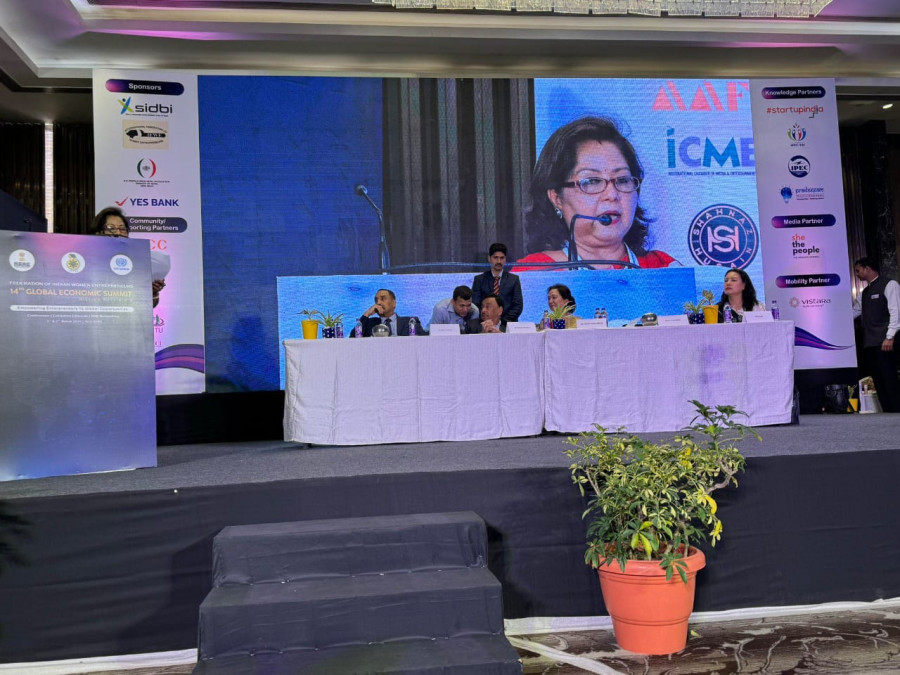National
Rana calls to reframe gender issues, up women’s participation
Congress leader Arzu Rana Deuba says Nepali women entrepreneurs face a myriad of challenges.
Post Report
Nepali Congress lawmaker Arzu Rana Deuba has pointed out a need for reframing gender issues and increasing women’s participation across all sectors “as Nepal navigates the path towards inclusive economic growth and prosperity”.
While addressing an international event, she urged one and all to come together to reframe gender issues and increase women’s participation across all sectors. “By embracing the economic prowess of women and fostering an enabling environment for entrepreneurship, we can unlock the full potential of our societies and build a brighter future for generations to come,” she said while addressing the 14th Global Economic Forum on ‘Empowerment of Women through Global Business Opportunities’ held in New Delhi, India.
The Congress central committee member said Nepali women entrepreneurs face a myriad of challenges and barriers that hinder their ability to thrive and grow their businesses.
“Traditional gender roles, stereotypes, and cultural norms not only limit women's access to opportunities, financing, and support but also impose immense pressure on them to prioritise family and household responsibilities over their entrepreneurial pursuits,” Rana said.
“This dual burden restricts their capacity to dedicate sufficient time and energy to their businesses, hindering their potential for success.”
She added that women entrepreneurs in Nepal often operate in low-productivity sectors with limited access to business education and growth opportunities.
“The transition from the informal sector to the formal sector poses additional challenges, requiring women to navigate complex regulatory frameworks and bureaucratic processes,” she said.
Citing an analytical report on ‘Women in Business’ by the Central Bureau of Statistics in 2021 that sheds light on the disparity in managerial positions, she said female managers comprise only 29.6 percent compared to their male counterparts at 70.3 percent.
“This imbalance can be attributed to various factors, including differences in educational attainment and the challenges women face in balancing professional and personal responsibilities, intensified by unequal distribution of household labour and societal expectations.”
She however informed the international participants about recent legal amendments in Nepal that have ushered in ‘a wave of positive change’ as well.
“Today, there is a provision for a 25–50 percent reduction in registration fees for land registered under women's names,” she said. “Daughters can also now rightfully inherit parental property post-marriage, ensuring a fair distribution of assets between sons and daughters.”
Terming it a significant stride towards equality, Rana said Nepali women are entitled to their husband's share of property in case of divorce, offering them a newfound sense of empowerment. “As we know, access to land is not merely about ownership; it's about security, independence, and confidence,” she said. “It’s a catalyst for women’s active participation in social and political arenas, reshaping societal norms and perceptions.”




 8.22°C Kathmandu
8.22°C Kathmandu













